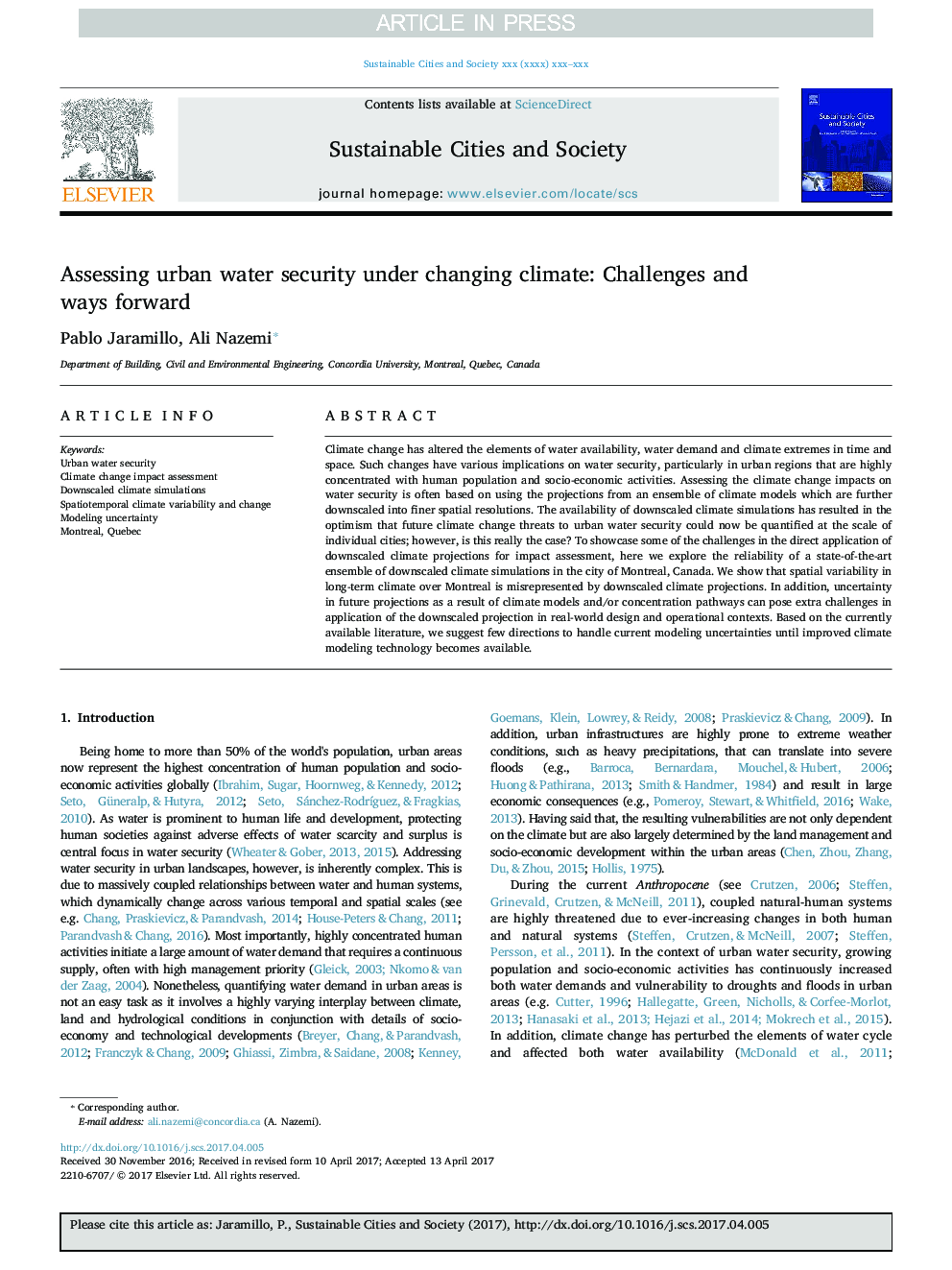| Article ID | Journal | Published Year | Pages | File Type |
|---|---|---|---|---|
| 6775364 | Sustainable Cities and Society | 2018 | 12 Pages |
Abstract
Climate change has altered the elements of water availability, water demand and climate extremes in time and space. Such changes have various implications on water security, particularly in urban regions that are highly concentrated with human population and socio-economic activities. Assessing the climate change impacts on water security is often based on using the projections from an ensemble of climate models which are further downscaled into finer spatial resolutions. The availability of downscaled climate simulations has resulted in the optimism that future climate change threats to urban water security could now be quantified at the scale of individual cities; however, is this really the case? To showcase some of the challenges in the direct application of downscaled climate projections for impact assessment, here we explore the reliability of a state-of-the-art ensemble of downscaled climate simulations in the city of Montreal, Canada. We show that spatial variability in long-term climate over Montreal is misrepresented by downscaled climate projections. In addition, uncertainty in future projections as a result of climate models and/or concentration pathways can pose extra challenges in application of the downscaled projection in real-world design and operational contexts. Based on the currently available literature, we suggest few directions to handle current modeling uncertainties until improved climate modeling technology becomes available.
Related Topics
Physical Sciences and Engineering
Energy
Renewable Energy, Sustainability and the Environment
Authors
Pablo Jaramillo, Ali Nazemi,
